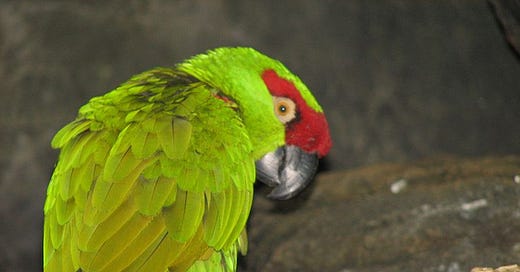Officials with the Statens Serum Institut (SSI) report an increase in psittacosis, or parrot fever cases.
Since 20 December 2023, 23 cases of psittacosis in humans have been detected in Denmark. Typically, around 15-30 cases are reported in a whole year.
"We are currently experiencing more cases than usual, and we hear the same message from other colleagues around Europe. That is why we ask doctors in practice and in hospitals to pay particular attention to the disease," says senior researcher Søren Uldum from the Statens Serum Institut.
Psittacosis is a disease caused by bacteria called Chlamydophila psittaci. It is usually transmitted by inhaling the agent from dried droppings or secretions of infected birds.
Subscribe to Outbreak News TV on YouTube
Patients with psittacosis usually present fever, headache, rash, muscle pain, chills and dry cough. Pneumonia may sometimes occur, and occasional complications include encephalitis, myocarditis and thrombophlebitis.
The disease can be treated effectively with antibiotics. The disease is not normally transmitted from person to person.
"We suspect that the main cause of the infection must be found among wild birds, and we have several measures underway to examine samples from wild birds in an attempt to clarify this."
Søren Uldum, senior researcher, Statens Serum Institut.
SSI advises:
Do not touch dead birds. If you find several dead or sick wild birds within a small area, it can be reported to the Danish Veterinary and Food Administration, primarily because of the risk of bird flu.
If you have to clean (sweep/rake) where there have been birds at feeding places, in outbuildings and the like, you should wet the surface beforehand so that it does not create dust.
If you find dead or sick birds in the garden, you must stop feeding them.
You must then scald the places where there has been feed and water.
Wash hands after contact with wild birds, feeding area or droppings.





